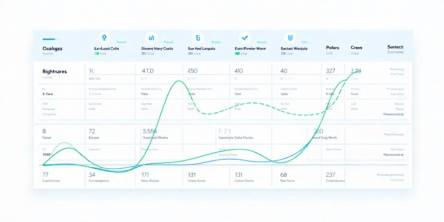How DevOps is Commanding a New Approach to Cloud Development

With the number of companies embracing digital solutions growing continuously, there is also an increasing demand for cloud services. Cloud development services help businesses (small or big) take advantage of digital transformation and to move their infrastructures to the cloud. Businesses are becoming a battleground where competitive scenarios force companies to rapidly build and utilize software to empower digital transformations. Cloud application development services are such methods that are taking up all the troublesome work and allowing businesses to focus more on creating applications that can fulfill the needs of consumers, employees, and business partners.
DevOps – which is a mixture of development and operations – is the true enabler for digital transformation. An excellent combination of people, technology, and process to advance software developments and analyze operations, DevOps enables companies to grow faster. According to Statista’s research report, the global cloud computing market size made a record of $83.41 billion in 2022, and it is expected to grow to $376.67 billion at a CAGR of 24% by 2029.
DevOps and Cloud – A Dynamic Duo
DevOps and cloud together enable end-to-end cloud application development and deployment with a considerable depletion in human errors. The reason behind organizations using DevOps automation services is to respond to the businesses and customer needs in semi-real-time – a solution that has been advertised as a cloud offering.
DevOps and cloud computing are becoming great partners rapidly in achieving speed and productivity in terms of software development in businesses. There will definitely be fewer limitations for development after joining these two. Businesses can also avail of the DevOps tools that are effective in cloud development. DevOps, based on the cloud, utilizes accounting based on usage, which measures the resource usage by program, developer, user data, etc. This is what conventional systems lack. It is much easier to track the development resources cost and make adjustments as needed when leveraging cloud-based resources.
DevOps and the cloud together offer value in virtual agility. Cloud computing already modifies IT operations and enables modernize systems in businesses. With DevOps principles, businesses can maximize the cloud’s operations by making them even more efficient. By using RPA (Robotic Process Automation), you can increase productivity by designing bots that implement processes.
It is DevOps that drives the interest and growth of the cloud. According to a report, while DevOps usage increases by 66%, organizations clock 71%. Therefore, it can be concluded that cloud computing needs DevOps more than vice versa.
Approaching Cloud Development with DevOps
What makes DevOps usage a leading enabling technology to get to the cloud? It is the need to simplify and quicken a development process that has brought growth for many enterprises. Although enterprises have put immense faith in DevOps, there is still a need for other resources to satisfy the needs of consumers and businesses. However, this can't be done just with a DevOps system. The high latency while purchasing the resources slows down the development process. This is why the Cloud development resource is also needed to speed up the overall process.
The changes should be done in the very beginning during Cloud application development. Modern DevOps tools provide many advantages. Today many businesses are using modern Cloud development services, but they need to automate the agile process. The best process that brings desired results is-
- Define your development requirements by checking out tasks that you are doing and will do in the future.
- You need to define the ROI.
- Define the basic processes that will continuously change with improvements and errors.
- Understand the target platform and build synergy between DevOps processes, targeted platforms, and automation.
- Define how exactly applications will operate in the cloud.
- Recruit people to get the right mix of DevOps, cloud computing, and software development skills.
Some Most Popular DevOps Cloud Development Platforms
The following companies are serving their customers globally, offering the best security and infrastructure with DevOps Cloud.
1. Amazon Web Services
2. Microsoft Azure
3. Google Cloud Platform
4. Docker Hub
5.GitLab
6. Nagios
7. Octopus
8. Oracle Cloud
Better Software Future with DevOps Cloud
As DevOps for cloud development continue to justify their combined value to enterprises, No wonder the leaders and CTOs are now strategizing their goals and making way to blend these processes into the system successfully. However, this would require a change in mindset, specifically about implementing cloud to the DevOps environment. Some of the great advantages that Cloud-based DevOps provide are–
- Easy and Improved collaboration
- Reduced operational costs
- Improved security
- Quicker development cycle
- Increased flexibility and scalability
The popular organizations that have benefitted by adopting DevOps Cloud are –
Netflix (Cloud Provider - AWS)
Coca-Cola (Cloud provider- AWS)
Kroger (Cloud provider- Microsoft Azure)
Etsy (Cloud provider - Google Cloud)
eBay (Cloud provider - Google Cloud)
PayPal (Cloud provider - Google Cloud)
Gameloft (Cloud provider – AWS)
The Challenge of Adopting DevOps and Cloud
Businesses that are still relying on old systems and software and want to adopt cloud-based DevOps technology have a lot of considerations to make. They need to analyze what is and is not working for them and how they want to get what they want in the most productive and cost-saving way. Budgeting carefully is crucial to moving your DevOps operations to the cloud. It includes understanding how much you are currently spending and inspecting what you hope to save while transitioning to the cloud. This includes subscriptions to several cloud tools and software, labor costs, cloud storage costs, upscaling and downscaling costs, etc. Getting a reliable Cloud DevOps service is also very crucial for the business. You need to put in the effort, time, and resources to help your team be comfortable with Cloud DevOps so that they get the most out of it, resulting in betterment for your enterprise.
Final Thoughts
The integrated approach to DevOps allows great software development that gives your business a competitive edge. However, it will require time and training, cultural shifts in the business, and a great focus on the long term. The rewards are great for enterprises that take risks and get it right—not just simpler and faster software development but higher levels of agility. If you are still thinking about it, it is never too late. It is time to stop thinking and start planning toward the greater future – DevOps with Cloud!
Similar Articles
Food delivery applications, including Uber Eats, DoorDash, Zomato, Swiggy, and Grubhub, generate large volumes of valuable data.
Modern businesses are drowning in communication overload, and much of that burden stems from outdated tools that simply can’t keep up
Building lending software isn’t just a technical project—it’s a business decision. Whether you're a fintech founder or part of a traditional lending institution trying to go digital, three questions will shape everything that follows
Learn why robust security is crucial for super app development. Explore key strategies and best practices for mobile app development security.
Walkie-talkies with an extensive reception capacity have changed significantly when it comes to portable communication by displaying cutting-edge features with seamless connectivity that covers more than just the state
USB-C technology has revolutionized the way we charge our devices, offering faster charging speeds, higher power delivery, and universal compatibility across multiple devices
Discover expert mobile app development strategies to create a viral app that attracts users and boosts engagement
Optimize app localization for iOS users across the EU with language, cultural, and regulatory adaptations. Engage users and boost retention with these tips!
Discover the top 10 mobile app development trends of 2024! Explore 5G, AI, AR/VR, blockchain, and more to stay ahead in the ever-evolving app development landscape.









